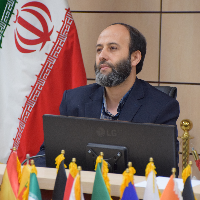A Rereading of Arguments for and against ʿAllāma Ṭabāṭabāʾī’s Account of the Deployment of Demonstrations Propter Quid in Philosophy
A major problem introduced to the contemporary Islamic philosophy by ʿAllāma Ṭabāṭabāʾī is whether propter quid demonstrations (al-barāhīn al-limmiyya) can be deployed in philosophy. ʿAllāma Ṭabāṭabāʾī’s account has given rise to two responses by contemporary scholars of Islamic philosophy: some have endorsed and defended his view, and others have criticized the account. In this article, we draw on a descriptive-analytic method and adopt a critical approach to assess the two responses. We conclude that, notwithstanding its novelties, ʿAllāma Ṭabāṭabāʾī’s account rests on problematic grounds. Moreover, it is founded upon a redefinition of demonstrations propter quid and quiatic demonstrations (al-barāhīn al-inniyya), which go against the common conception of these demonstrations in Islamic logic.
-
Rereading the Qur'anic Proofs of Abdul Karim Soroush's View in Attributing Authoritarianism to Islam
Hamed Sajjadi Gugdare*, Mohammadali Vatandust
Andishe-Novin-E-Dini, -
چگونگی جریان سنت استدراج و هدایت در قرآن با رویکرد پاسخ به شبهات
محمدعلی وطن دوست*، محمد تشکری آبقد
فصلنامه تحقیقات کلامی، بهار 1403



